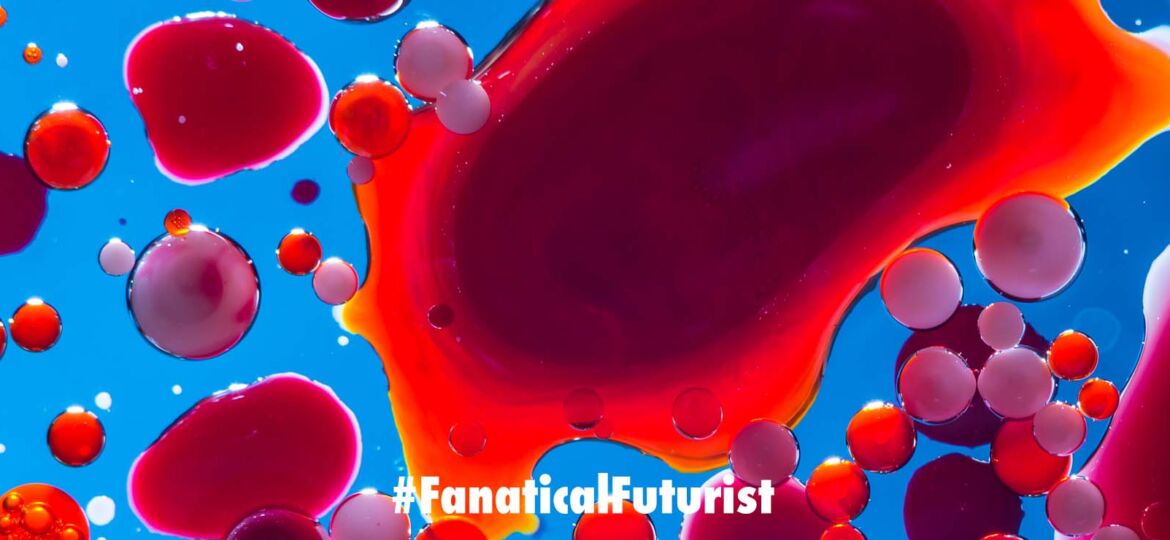
WHY THIS MATTERS IN BRIEF
Your body attacks all sorts of things it should like itself, or pollen, or blood clotting agents and so on, this new treatment stops it doing that and could change medicine.
 Love the Exponential Future? Join our XPotential Community, future proof yourself with courses from XPotential University, read about exponential tech and trends, connect, watch a keynote, or browse my blog.
Love the Exponential Future? Join our XPotential Community, future proof yourself with courses from XPotential University, read about exponential tech and trends, connect, watch a keynote, or browse my blog.
Thanks to the pandemic everyone on the planet has now heard of vaccines, but have you heard about reverse vaccines? Probably not. The immune system is a powerful weapon protecting us from dangerous infection but sometimes it can get a little overzealous and attack things that are actually trying to help. As a result of this odd phenomenon researchers have been developing a new preclinical treatment that could one day help us with this problem by using what they’re calling a kind of “reverse vaccine” that will train the human immune system to ignore specific drugs or molecules.
For all its protective power, the immune system can mistakenly mount attacks on harmless molecules, proteins, or enzymes in drugs, food, or the environment, leading to allergies or reducing the effectiveness of treatments. Other times it can begin attacking cells in our bodies, triggering a broad range of autoimmune diseases.
So if vaccination works by strengthening the immune system’s response against a particular target, could the process be “reversed” to build tolerance for things that are beneficial? For the new study, researchers at the University at Buffalo investigated doing just that.
The team was focusing on two specific diseases, the treatments for which are often thwarted by the immune system. Hemophilia A is a condition where blood clots don’t form properly, and treatment involves clotting agents called Factor VIII – which the immune system can render inactive. Pompe disease, meanwhile, is a rare genetic disorder that weakens muscles due to insufficient amounts of an enzyme called GAA. Enzyme replacement therapy can help – unless the immune system attacks those enzymes, which it does in almost all cases.
“The safety and effectiveness of several life-saving therapeutic drugs are compromised by anti-drug antibodies,” says Sathy Balu-Iyer, lead investigator on the study. “Once antibodies develop, clinical options available for patients become expensive and, in several cases, ineffective.”
Previous studies have shown that a fatty acid called Lyso-PS can help. When administered alongside therapeutic proteins, the fatty acid seems to help the immune system tolerate the drug. In the new study, the Buffalo team developed a Lyso-PS nanoparticle that was just the right size and had the right characteristics to be easily taken up by cells.
The team tested the combo in mouse models of hemophilia and Pompe disease, giving the animals the nanoparticles alongside the usual therapeutic proteins. And sure enough, the nanoparticles successfully prevented 75 percent of the hemophilic mice from developing antibodies against the Factor VIII protein, while the majority of Pompe mice also expressed significantly lower levels of anti-GAA antibodies. Both treatments worked well when delivered either intravenously or orally.
The researchers say that this kind of treatment could not only be effective against the two diseases tested, but could eventually be expanded to allergies, autoimmune disorders and other drug therapies.
“Instead of attempting to reverse the anti-drug antibodies, which is highly challenging, clinical treatments that prevent antibody development may be a more effective strategy,” says Nhan Hanh Nguyen, first author of the study. “Our approach is based on the rationale that pre-exposure of a protein in the presence of Lyso-PS teaches the immune system not to mount a response.”
The research was published in the journal Scientific Reports.
Source: University at Buffalo
















